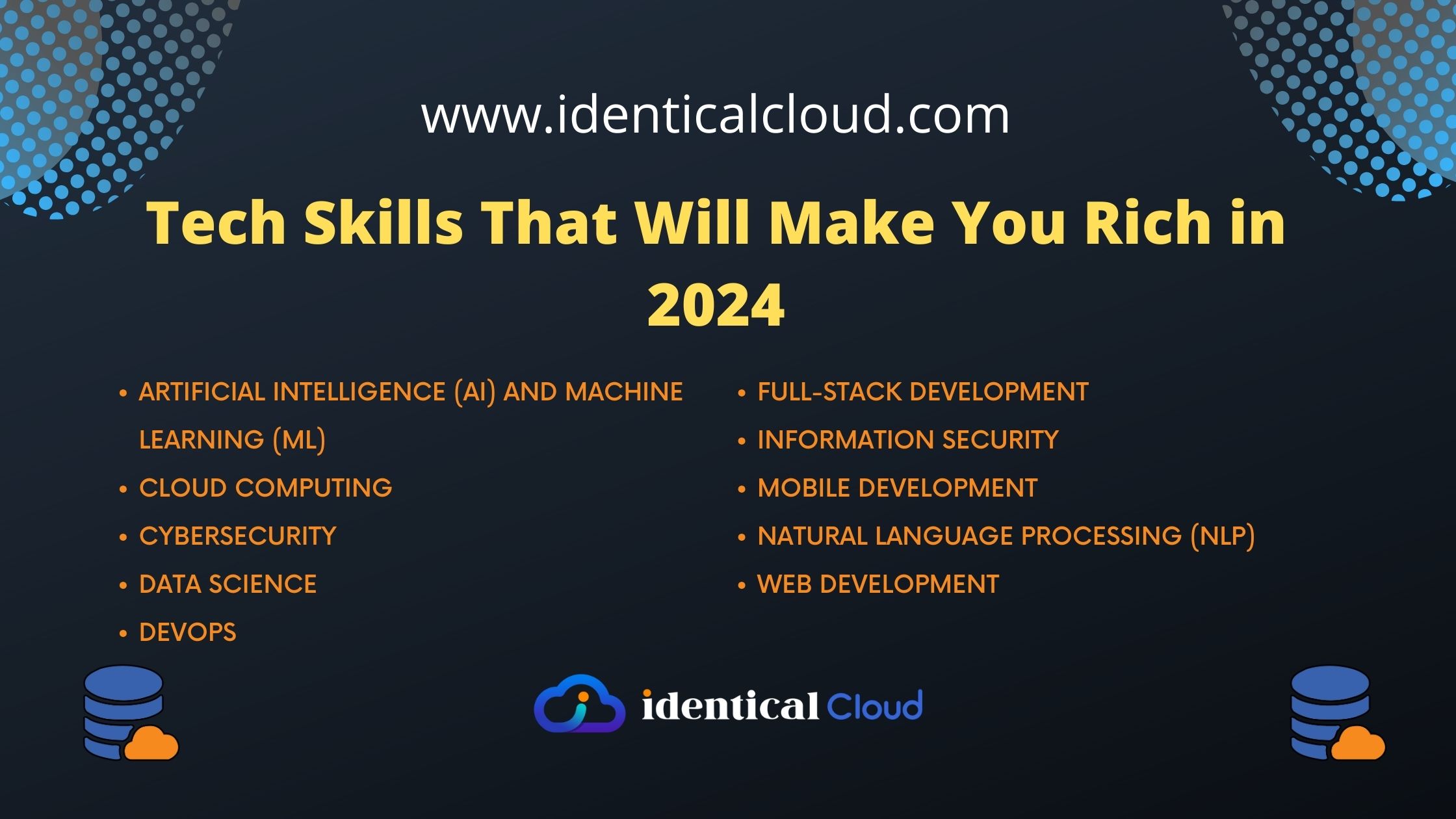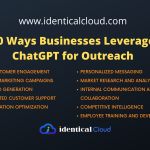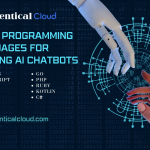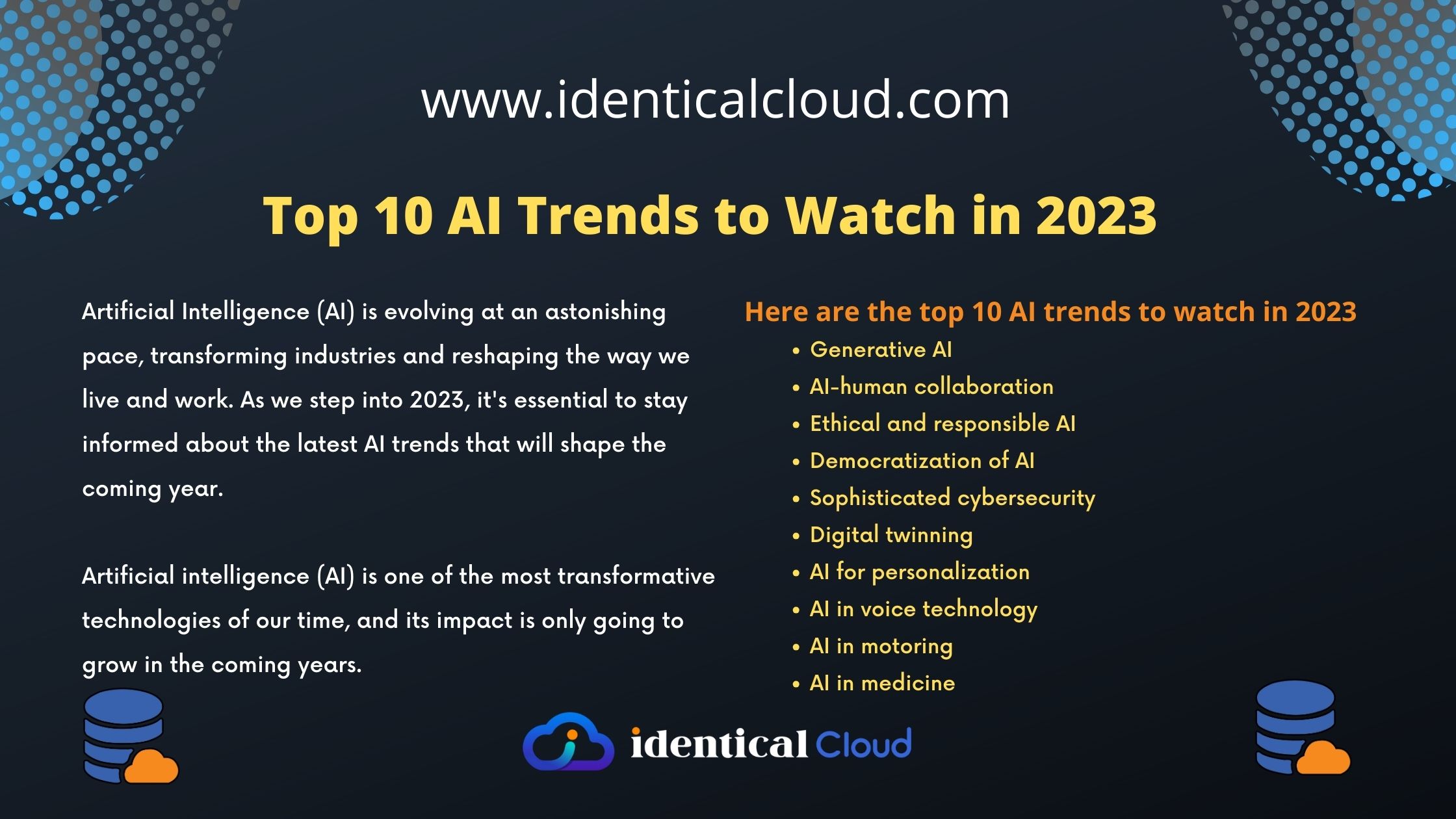
10 Tech Skills That Will Make You Rich in 2024
10 Tech Skills That Will Make You Rich in 2024
In today’s fast-paced and ever-evolving tech landscape, staying ahead of the curve is essential for career success. If you’re looking to boost your earning potential in 2024 and beyond, mastering in-demand tech skills is a smart strategy.
Here are 10 tech skills that are projected to be particularly lucrative and sought after in the coming year:
1. Artificial intelligence (AI) and machine learning (ML)
Artificial intelligence (AI) and machine learning (ML) are two of the most transformative technologies of our time. AI is the field of computer science that deals with the creation of intelligent agents, which are systems that can reason, learn, and act autonomously. ML is a subset of AI that focuses on developing algorithms that can learn from data without being explicitly programmed.
AI and ML are already having a major impact on a wide range of industries, including healthcare, finance, manufacturing, and transportation. For example, AI is being used to develop new drugs and treatments, detect fraud, improve manufacturing efficiency, and create self-driving cars. ML is being used to personalize product recommendations, predict customer churn, and automate tasks such as spam filtering and medical diagnosis.
As AI and ML continue to develop, they are expected to have an even greater impact on our lives. AI and ML are already being used to develop new products and services that will improve our quality of life. For example, AI is being used to develop new medical devices and treatments, and ML is being used to develop new educational tools and personalized learning platforms.
Here are some specific examples of how AI and ML are being used today:
- Healthcare: AI is being used to develop new drugs and treatments, detect diseases early, and personalize treatment plans. For example, AI-powered systems are being used to develop new cancer drugs and to predict the risk of heart disease.
- Finance: AI is being used to detect fraud, manage risk, and make investment decisions. For example, AI-powered systems are being used to detect fraudulent credit card transactions and to predict the performance of stocks.
- Manufacturing: AI is being used to improve manufacturing efficiency, quality control, and predictive maintenance. For example, AI-powered systems are being used to optimize production schedules, identify defects in products, and predict when machines are likely to fail.
- Transportation: AI is being used to develop self-driving cars and trucks, and to improve traffic flow. For example, AI-powered systems are being used to develop self-driving cars that can navigate complex road conditions and to optimize traffic flow in cities.
AI and ML are still in their early stages of development, but they have the potential to revolutionize many aspects of our lives. As AI and ML continue to develop, we can expect to see new and innovative products and services that will improve our quality of life.
2. Cloud computing
Cloud computing is the delivery of computing services – including servers, storage, databases, networking, software, analytics, and intelligence – over the internet (“the cloud”) to offer faster innovation, flexible resources, and economies of scale.
Cloud computing is a broad term that encompasses many different services.
Cloud computing services:
- Infrastructure as a service (IaaS): IaaS provides you with the basic building blocks of cloud computing, such as computing power, storage, and networking.
- Platform as a service (PaaS): PaaS provides you with a platform for developing, deploying, and managing applications.
- Software as a service (SaaS): SaaS provides you with access to software applications that are hosted in the cloud.
Cloud computing offers a number of benefits over traditional on-premises IT infrastructure.
Benefits of cloud computing:
- Cost savings: Cloud computing can help you save money on IT costs by eliminating the need to purchase and maintain your own hardware and software.
- Scalability: Cloud computing is highly scalable, which means that you can easily add or remove resources as needed. This can be helpful for businesses that experience seasonal fluctuations in demand.
- Flexibility: Cloud computing is very flexible, which means that you can choose the services that you need and pay only for what you use.
- Reliability: Cloud computing providers offer a high level of reliability and uptime. This means that you can be confident that your applications and data will be available when you need them.
Cloud computing is a powerful tool that can help businesses of all sizes to improve their IT infrastructure and reduce costs.
3. Cybersecurity
Cybersecurity is the practice of protecting systems, networks, and data from unauthorized access, use, disclosure, disruption, modification, or destruction. Cybersecurity is important for businesses of all sizes, as well as individuals, as cyberattacks can cause significant financial and reputational damage.
There are a number of different types of cyberattacks, including:
- Malware: Malware is malicious software that can damage or disable systems, networks, and data. Malware can be spread through email attachments, infected websites, or USB drives.
- Phishing: Phishing attacks are attempts to trick people into revealing sensitive information, such as passwords or credit card numbers. Phishing attacks can be carried out through email, text messages, or social media.
- Ransomware: Ransomware is a type of malware that encrypts data and demands a ransom payment in order to decrypt it.
- Denial-of-service (DoS) attacks: DoS attacks are attempts to overwhelm a system or network with traffic, making it unavailable to legitimate users.
- Man-in-the-middle attacks: Man-in-the-middle attacks occur when an attacker intercepts communication between two parties and impersonates one of the parties. This can allow the attacker to steal data or redirect traffic to malicious websites.
There are a number of things that businesses and individuals can do to protect themselves from cyberattacks, including:
- Use strong passwords and enable multi-factor authentication: Strong passwords and multi-factor authentication can help to prevent unauthorized access to systems and accounts.
- Keep software up to date: Software updates often include security patches that can help to protect systems and networks from known vulnerabilities.
- Be careful about what links you click on and what attachments you open: Phishing attacks are often disguised as legitimate emails or text messages. Be careful about clicking on links or opening attachments from unknown senders.
- Have a backup plan: In the event of a cyberattack, it is important to have a backup plan in place so that you can recover your data and restore your systems.
Cybersecurity is an important issue for businesses and individuals alike.
4. Data science
Data science is a field of study that combines statistics, mathematics, computer science, and domain knowledge to extract meaningful insights from data. Data scientists use a variety of tools and techniques to collect, clean, analyze, and visualize data. They then use their findings to solve real-world problems and make better decisions.
Data science is used in a wide range of industries, including healthcare, finance, retail, and manufacturing. For example, data scientists are used to develop new drugs and treatments, detect fraud, improve manufacturing efficiency, and personalize product recommendations.
Here are some of the key tasks that data scientists perform:
- Data collection: Data scientists collect data from a variety of sources, including databases, sensors, and social media.
- Data cleaning: Data scientists clean data to remove errors and inconsistencies.
- Data analysis: Data scientists analyze data to identify patterns and trends.
- Data visualization: Data scientists create visualizations to communicate their findings to others.
Data scientists use a variety of tools and techniques to perform their work.
Some of the most common tools and techniques include:
- Programming languages: Data scientists use programming languages such as Python and R to write code to collect, clean, analyze, and visualize data.
- Machine learning: Data scientists use machine learning algorithms to build models that can learn from data and make predictions.
- Statistical analysis: Data scientists use statistical analysis to identify patterns and trends in data.
- Data mining: Data scientists use data mining techniques to extract meaningful insights from large amounts of data.
Data science is a rapidly growing field, and there is a high demand for data scientists. If you are interested in a career in data science, you will need to have a strong foundation in mathematics, statistics, and computer science.
5. DevOps
DevOps is a set of practices that combines software development (Dev) and information technology operations (Ops) to shorten the systems development life cycle and provide continuous delivery with high software quality.
DevOps is complementary with Agile software development; several DevOps aspects came from Agile methodology.
DevOps is characterized by an emphasis on people (and culture), and seeks to improve collaboration between operations and development teams. DevOps implementations utilize technology especially automation tools that can leverage an increasingly programmable and dynamic infrastructure from a life cycle perspective.
DevOps is complementary with Agile software development; several DevOps aspects came from Agile methodology. Some of the key DevOps practices include:
- Continuous integration and continuous delivery (CI/CD): CI/CD is a set of practices that automates the software development and delivery process. This allows teams to release software more frequently and with fewer errors.
- Infrastructure as code: Infrastructure as code is a practice of managing and provisioning infrastructure using code. This allows teams to automate the infrastructure deployment and management process.
- Configuration management: Configuration management is a practice of tracking and controlling changes to infrastructure and applications. This helps to ensure that systems are in a known and consistent state.
- Monitoring and observability: Monitoring and observability is a practice of collecting and analyzing data from systems and applications. This helps teams to identify and resolve problems quickly.
DevOps can help organizations to improve their software development and delivery process in a number of ways, including:
- Reduced time to market: DevOps can help organizations to release software more frequently and with fewer errors. This can help them to stay ahead of the competition and meet the needs of their customers more quickly.
- Improved quality: DevOps can help organizations to improve the quality of their software by automating the testing and deployment process. This can help to reduce the number of bugs in released software.
- Reduced costs: DevOps can help organizations to reduce the cost of software development and delivery by automating manual tasks and reducing the need for specialized infrastructure.
- Increased customer satisfaction: DevOps can help organizations to increase customer satisfaction by delivering high-quality software more frequently.
DevOps is a complex and evolving field, but it offers a number of benefits for organizations of all sizes.
6. Full-stack development
Full-stack development is the process of building and maintaining both the front-end and back-end of a web application.
Full-stack developers have a broad range of skills and knowledge, including:
- Front-end development: Front-end development is the process of building the user interface of a web application. Front-end developers use languages such as HTML, CSS, and JavaScript to create web pages that are interactive and visually appealing.
- Back-end development: Back-end development is the process of building the server-side logic and databases of a web application. Back-end developers use languages such as Python, Java, and PHP to build applications that can process data and respond to user requests.
Full-stack developers are in high demand in the tech industry, as they can handle all aspects of the web development process. They are also well-positioned to understand the full picture of a web application and to make decisions that benefit both the user experience and the application’s performance.
Benefits of full-stack developer:
- High demand: Full-stack developers are in high demand in the tech industry, so you can expect to have plenty of job opportunities.
- Competitive salary: Full-stack developers typically earn a competitive salary, as they have a broad range of skills and knowledge.
- Variety of work: Full-stack developers can work on a variety of projects, from small websites to large enterprise applications. This can help to keep your work interesting and challenging.
- Flexibility: Full-stack developers can often work remotely or on a freelance basis, which can give you more flexibility in your work schedule.
7. Information security
Information security is the practice of protecting information systems, networks, and data from unauthorized access, use, disclosure, disruption, modification, or destruction. Information security is important for businesses of all sizes, as well as individuals, as information security breaches can cause significant financial and reputational damage.
There are a number of different types of information security threats, including:
- Cyberattacks: Cyberattacks are attempts to gain unauthorized access to systems, networks, or data. Cyberattacks can be carried out through malware, phishing emails, or denial-of-service attacks.
- Human error: Human error is a common cause of information security breaches. Human error can include things like accidentally sending sensitive information to the wrong person or clicking on a phishing link.
- Physical security threats: Physical security threats include things like theft of laptops or hard drives, or unauthorized access to data centers.
There are a number of things that organizations and individuals can do to protect themselves from information security threats, including:
- Implement strong security controls: Security controls include things like firewalls, intrusion detection systems, and access control lists. Security controls can help to prevent unauthorized access to systems, networks, and data.
- Educate employees about information security: Employees should be educated about information security best practices, such as how to create strong passwords and how to identify phishing emails.
- Have a plan in place to respond to security incidents: In the event of a security incident, organizations and individuals should have a plan in place to respond quickly and effectively. This plan should include steps to contain the incident, investigate the incident, and recover from the incident.
Information security is an important issue for organizations and individuals alike. By taking steps to protect themselves from information security threats, organizations and individuals can help to minimize the risk of damage and disruption.
8. Mobile development
Mobile development is the process of creating software applications for mobile devices, such as smartphones and tablets.
Mobile developers use a variety of programming languages and tools to build mobile apps, including:
- Native development: Native development involves using programming languages and tools that are specific to the mobile platform you are developing for. For example, to develop a native iOS app, you would use the Swift programming language and the Xcode IDE.
- Cross-platform development: Cross-platform development involves using programming languages and tools that allow you to develop mobile apps for multiple platforms. For example, you could use the Flutter framework to develop mobile apps for both iOS and Android.
Mobile development is a rapidly growing field, as more and more people are using mobile devices to access the internet and use apps. Mobile apps can be used for a variety of purposes, including:
- Productivity: Mobile productivity apps can help users to stay organized and productive on the go. Examples of mobile productivity apps include email apps, calendar apps, and note-taking apps.
- Entertainment: Mobile entertainment apps can help users to stay entertained on the go. Examples of mobile entertainment apps include games, music apps, and movie streaming apps.
- Social media: Mobile social media apps allow users to connect with friends and family, and share content online. Examples of mobile social media apps include Facebook, Twitter, and Instagram.
- Utilities: Mobile utility apps can help users to perform everyday tasks, such as checking the weather or finding directions. Examples of mobile utility apps include weather apps, map apps, and flashlight apps.
9. Natural language processing (NLP)
Natural language processing (NLP) is a field of computer science that deals with the interaction between computers and human (natural) languages. It’s concerned with giving computers the ability to understand and process human language, including speech and text.
NLP has a wide range of applications, including:
- Machine translation: Translating text from one language to another
- Speech recognition: Converting spoken language to text
- Text-to-speech: Converting text to spoken language
- Chatbots: Creating conversational AI systems that can interact with humans
- Question answering: Answering questions posed in natural language
- Sentiment analysis: Identifying and understanding the sentiment of a piece of text
- Summarization: Generating summaries of long pieces of text
NLP is a complex and challenging field, but it has the potential to revolutionize the way we interact with computers. By giving computers the ability to understand and process human language, we can open up new possibilities for communication, collaboration, and creativity.
Here are some examples of how NLP is being used today:
- Google Translate: Google Translate uses NLP to translate text between over 100 languages.
- Siri, Alexa, and Google Assistant: These virtual assistants use NLP to understand and respond to spoken commands.
- Spam filters: Spam filters use NLP to identify and block spam emails.
- Social media platforms: Social media platforms use NLP to recommend content to users and to identify harmful content.
- Customer service chatbots: Customer service chatbots use NLP to answer customer questions and resolve issues.
10. Web development
Web development is the process of creating and maintaining websites and web applications.
It encompasses a wide range of skills and knowledge, including:
- Front-end development: Front-end development is the process of building the user interface of a website or web application. Front-end developers use languages such as HTML, CSS, and JavaScript to create web pages that are interactive and visually appealing.
- Back-end development: Back-end development is the process of building the server-side logic and databases of a website or web application. Back-end developers use languages such as Python, Java, and PHP to build applications that can process data and respond to user requests.
Web development is a rapidly growing field, as more and more businesses and individuals are moving online. Web developers are in high demand, and there are many different opportunities available for those with the right skills and experience.
Benefits of web developer:
- High demand: Web developers are in high demand, so you can expect to have plenty of job opportunities.
- Competitive salary: Web developers typically earn a competitive salary, as they have a broad range of skills and knowledge.
- Variety of work: Web developers can work on a variety of projects, from small websites to large enterprise web applications. This can help to keep your work interesting and challenging.
- Flexibility: Web developers can often work remotely or on a freelance basis, which can give you more flexibility in your work schedule.
Remember that success in these fields requires not only learning the skills but also staying up-to-date with the latest developments. Continuous learning and adaptability are key to a successful tech career. Additionally, certifications and practical experience are valuable in demonstrating your expertise to potential employers.
Investing in your tech skills now can position you for a prosperous career in 2024 and beyond. Whether you’re just starting out or looking to pivot your career, these skills offer exciting opportunities for personal and financial growth.







